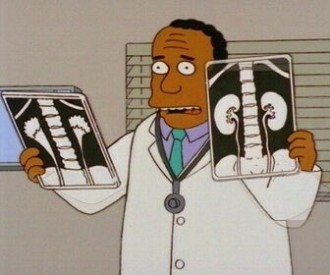
Time for another installment of this Wednesday/Sunday night series!
Picking up from last time –
So, the first thing the psychiatrist said we’d discuss – informed consent.
He asks me basic questions about the procedure and what it will mean for me (time spent in the hospital and such).
He asks, “What are some possible complications for the kidney recipient?” For some reason, this question surprised me. It probably shouldn’t have. If I care enough about a stranger to give her a kidney, don’t you think I’d care at least a bit about that person’s recovery?
I guess I wasn’t thinking about it since I’m never going to meet that person or see her recovery. So, I think I kind of maybe distanced myself from that part of it, kind of assuming, “Eh, once she has it, I’m not part of her process anymore.”
While it’s true I won’t be part of the patient’s recovery, I guess it is a little weird not to be thinking about her and what she’s going through – maybe it’s even a little selfish of me to say, “Eh, my part will be done by then.” [*Wipes hands dramatically, and exits grandly.*]
So, he definitely made me think about the other person’s full journey a little more, which I was happy about.
When I was answering his question about possible complications for the recipient, I mentioned that she could reject the kidney. I thought if a kidney was rejected, it had to be taken out. But I learned in this interview that the kidney’s actually left in!

Apparently it’s more dangerous to make a recipient go through another surgery to remove the kidney than it is to leave the rejected kidney in.
While I do feel I’m tripping up a little on this question – since I didn’t know a rejected kidney stays in someone’s body – at least I’m learning an interesting new fact! And the psychiatrist is being super cool. He tells me most people don’t know that a rejected kidney stays in.
I still wish I would’ve known. The medical professionals expect you to retain a lot of details about kidney donation, so they can be sure you know what you’re getting into. And not even for them, but for myself, I want to be confident that I do understand the process.
But at least I can justify not knowing this specific detail to myself, since it really doesn’t affect the donor (me)… So, that’s something, right?
And we’ll pick up here next time.